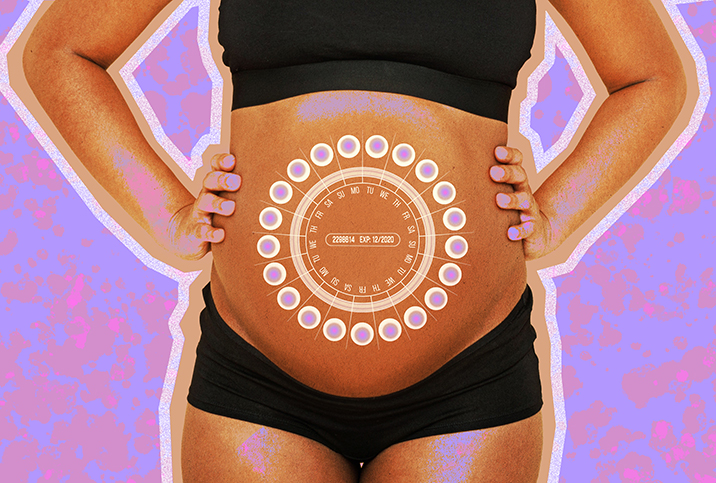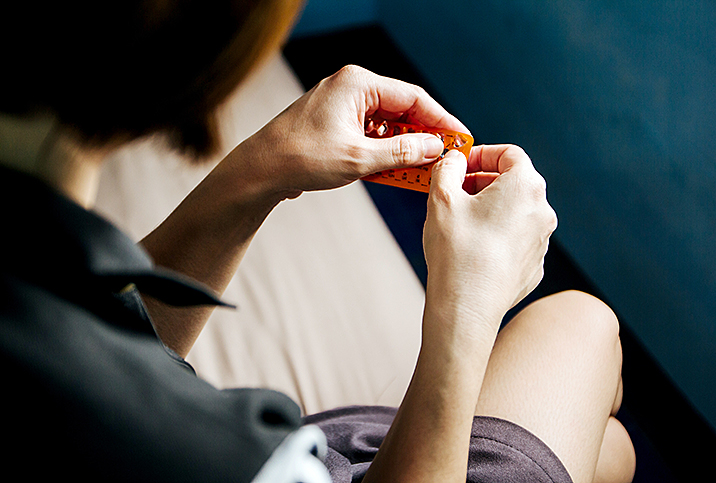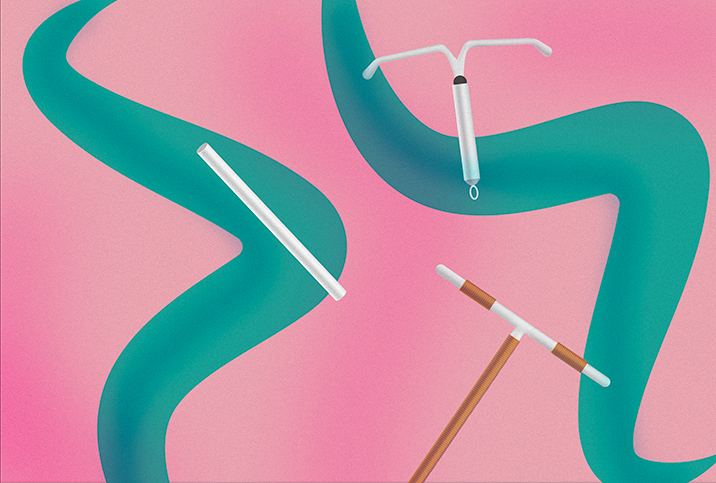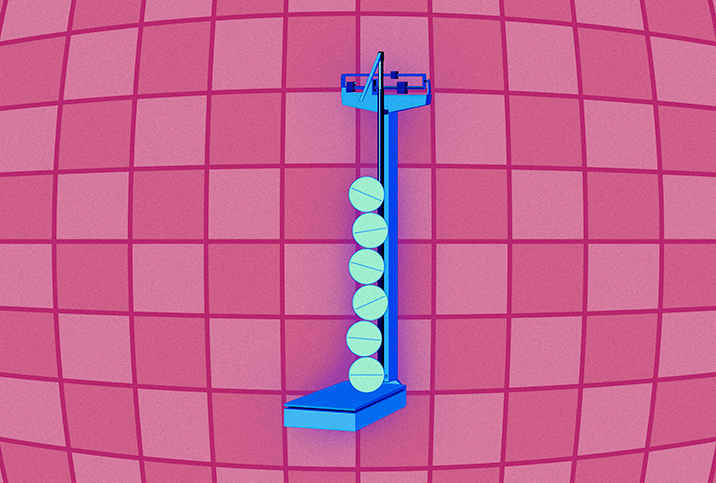Oh, No! I Took Birth Control While Pregnant

So you've been sexually active while using a form of birth control. Suddenly, you discover you're pregnant, and while it may be unexpected and unplanned, you're thrilled.
But there's something worrying you.
You've been pregnant for a few weeks now, but during that time you continued to take your birth control as usual. Now that you know, there's obviously no need to continue with your contraception, but will the use of birth control so far during the pregnancy present any harm or risk to your baby?
It's a totally valid question. Luckily, your fears can be allayed.
"There is no reason to continue to take birth control when someone is pregnant, but the hormones will not cause any harm to the pregnancy," said Eliza Buyers, M.D., an OB-GYN at the University of Colorado in Denver.
"The hormones in oral or patch birth control work because they trick the body into thinking it is pregnant, thus, keeping the hormone levels steady to prevent ovulation," said Betsy Greenleaf, D.O., a physician in Howell, New Jersey, owner of the Pelvic Health Institute at Greenleaf Health and Wellness and CEO of the Pelvic Floor Store.
'There is no reason to continue to take birth control when someone is pregnant, but the hormones will not cause any harm to the pregnancy.'
"Normally, in the menstrual cycle, there is synchronized variation in estrogen and progesterone levels that trigger ovulation and then a period once fertilization does not occur. Since the body is already thinking it is pregnant, the hormones won't be disturbed," Greenleaf explained.
"The hormones in birth control are similar to the ones naturally made by the body," Buyers agreed. "They do not harm the fetus."
You shouldn't worry too much about how many weeks you've been pregnant while on birth control, either. As always, if you're concerned, make an appointment with a healthcare professional.
You don't need to stress about emergency contraception, either.
"Just like birth control, emergency contraception pills do not harm a pregnancy in any way if someone is already pregnant," Buyers said. "If a person has had unprotected sex and wants to take EC, this is safe to do even if they can't take a pregnancy test or if they are so early in pregnancy that the test is not yet positive."
Can birth control cause a miscarriage?
You may also wonder whether contraceptives can cause a miscarriage.
"Same happy answer," said Kate White, M.D., M.P.H., associate professor of OB-GYN at the Boston University School of Medicine. "If you accidentally use birth control while pregnant, it won't cause a miscarriage. The only exception to this may be an IUD. When you get pregnant with an IUD in place, you have a higher risk of miscarriage. The risk is lower if your doctor can remove the IUD."
"Sometimes the placenta can separate from the uterus before or during delivery," said Jane Frederick, M.D., medical director of HRC Fertility in Orange County, California. "There may be a link between becoming pregnant with an IUD in place and placental abruption. The best step is to have the IUD removed early on. Removal of the IUD can cause a small risk of miscarriage, but this risk will be lower than the risk of leaving it in."
"If the doctor can see the strings of the IUD, they'll recommend removal to reduce the risk of miscarriage or infection," White added. "But if the strings have rolled up into the uterus and aren't visible, the doctor may recommend watching to see what happens."
It's crucially important to remember you should never blame yourself if a miscarriage does occur.
"Women often blame themselves, but the truth is it is not your fault," Greenleaf said.
Once you realize you're pregnant
The use of birth control may make it more difficult to determine the date of conception.
"It will be important for them to get in for an ultrasound to know how far along the pregnancy is," Buyers said. "When someone gets pregnant while using birth control, using the common method of dating based on the last menstrual period is less reliable."
"When they have their first prenatal care visit with a doctor or midwife, they should mention that they were using birth control," White said. "This is important as it may be hard to assess the first day of their last period, and their clinician may want an early ultrasound to figure out how far along they are in the pregnancy."
Greenleaf pointed out the need to consider increasing your vitamin intake to reflect the birth control you'd been taking.
"My concern is more of the fact that oral hormonal birth control can lead to vitamin deficiencies and, therefore, vitamin deficiencies are more of an issue in a developing pregnancy," she said. "This is why women that are of childbearing years should be taking vitamins to boost B vitamins, methylfolate, zinc, magnesium and vitamin C."
Hopefully, this goes without saying, but stop taking birth control as soon as you can.
"If someone has been taking the pill or using the patch or the ring and have a positive pregnancy test, they should stop taking the method," White said. "If they were using the injection, there's no way to reverse the effects, the hormone will just decrease over time."
How likely is pregnancy while using birth control?
The chances of pregnancy when you're using birth control vary depending on your circumstances.
"How likely someone is to become pregnant when using birth control is based on many factors, including what type of birth control they are on and how it is used," Buyers said. "For example, with birth control pills, did the next pack get started late or were some pills missed?"
You should always take a pregnancy test if you think there's any chance you might be pregnant, even if you're on birth control.
"Home and office urine pregnancy tests are very reliable," Buyers said. "If you are using a birth control method and think you might be pregnant, it is OK to do a quick test to get an answer. Know that it takes about two weeks from fertilization—egg and sperm meeting—for a test to become positive."
If that test is positive, don't panic if you've been taking birth control up until that point. Just make an appointment with a healthcare professional at the earliest opportunity, tell them you've been taking birth control and let them know about any concerns you have.
Editor's note: These statements have not been evaluated by the Food and Drug Administration. Our medical experts advise that you consult with your primary healthcare provider before you begin using a supplement. This information is not intended to diagnose, treat, cure or prevent disease.


















